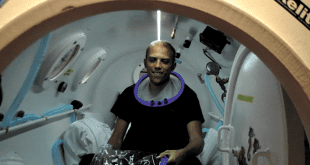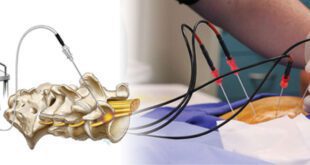 Men’s Health Month, celebrated every June, is a good time for men of all ages to focus on steps to reduce their cancer risks and learn about the screenings available to detect problems early.
Men’s Health Month, celebrated every June, is a good time for men of all ages to focus on steps to reduce their cancer risks and learn about the screenings available to detect problems early.
Skin, prostate, lung and colon cancer are the four most common cancers in American men. Here’s a closer look at what men need to know.
Skin Cancer
More people are diagnosed with skin cancer in the U.S. each year than all other cancers combined. While skin cancers have been on the rise during the past 10 years, the rate of increase is higher in men than in women.
Researchers believe that composition differences in men’s skin contribute to this increase. Men have thicker skin with more collagen and elastin and less fat underneath, making it more likely to be damaged by the sun’s UV rays.
The good news is that skin cancer is one of the most preventable cancers. Here’s how to reduce your risk:
• Whenever you are in the sun, even briefly, wear sunscreen with a sun protection factor (SPF) of 30+, and reapply frequently.
• Do not use tanning beds.
• Avoid exposure to harmful chemicals and pollutants like motor vehicle exhaust, coal tar, petroleum products and tobacco.
It’s important to be in tune with your skin. Watch for any change in moles or freckles, and be aware of suspicious new growths, especially on the chest, back, arms, neck and face. It’s also recommended to have an annual skin check by a health care provider.
Prostate Cancer
Aside from skin cancer, prostate cancer is the most common cancer in American men. One in 8 men will be diagnosed with prostate cancer in their lifetime. African American men are 60% more likely to develop the disease than white, Latino or Asian men.
Warning signs for prostate cancer can include:
• Frequent urination, often with the sudden need to urinate in the middle of the night
• Pain or burning during urination
• Blood in the urine
• Weak urine flow
Some men have no symptoms, which reinforces the importance of screenings. The American Cancer Society recommends prostate cancer screening beginning at age 50 for men at average risk and age 45 for African American men and any male with an immediate family member diagnosed with the disease before age 65.
Screenings may involve a blood test measuring prostate-specific antigen (PSA) levels. As a rule, the higher the PSA level, the more likely that a problem is present. A digital rectal exam can also detect abnormalities.
Lung Cancer
Lung cancer remains the leading cause of cancer deaths in the U.S. and the cause of 22% of all cancer deaths in men.
Approximately 85% of all lung cancers occur in people who smoke or who are exposed to second-hand smoke. However, about 20% of lung cancer deaths occur in people who have never smoked. Nonsmokers diagnosed with lung cancer experience a unique set of genetic cancers, and researchers are working to understand more about their causes.
In many cases, there are no symptoms associated with early-stage lung cancer. A tumor may only be detected once it becomes reasonably large. Symptoms to be alert for include:
• Coughing up blood, or a cough that doesn’t go away
• Recurrent episodes of pneumonia or bronchitis
• Wheezing or shortness of breath
• A high-pitched, whistling-type sound when breathing in or out, or hoarseness in your voice
Because symptoms can be vague, it’s essential to pay close attention to any warning signs and contact your health care provider if you experience any symptoms. Low-dose spiral CT scans (a type of X-ray imaging) of the chest can detect lung cancer in its early stages and are recommended for people with a history of heavy smoking.
Colorectal Cancer
Colon and rectal cancer, also referred to as colorectal cancer, encompasses cancer of the colon and rectum, parts of our digestive system that process and help pass foods, water and waste out of the body.
When cells grow out of control, the abnormal growths, called polyps, can become cancerous. As a tumor grows, it may bleed or block the intestine. The most common warning signs include blood in the stool or toilet after a bowel movement, dark or black stools, or bleeding from the rectum.
Because there are often no signs or symptoms, screening is vital to detect polyps, genetic changes or other abnormalities. The American Cancer Society recommends regular screenings beginning at age 45, or sooner if you have a family history of colorectal cancer. Colonoscopy, sigmoidoscopy, and blood or stool tests are the most common screening tools.
Ways to Reduce Your Risk
While aging and genetics are factors we cannot change, there are still many ways to reduce your cancer risk.
Don’t smoke. The carcinogens in tobacco can damage nearly every organ in the body, increasing the risk of cancer and other diseases. If you smoke, find a way to quit. Talk with your doctor, and check out resources in your local community and online.
A plant-based diet high in fruits, vegetables, beans and whole grains and low in red meat, processed foods and sugar can help reduce cancer risk. Men should limit alcohol consumption to no more than two drinks per day.
Aim for at least 30 minutes of physical activity daily to help control your weight and avoid obesity, with the added benefits of increased energy, reduced stress and a healthy boost to the immune system to help fight chronic disease, including cancer.
Stay current with screenings. Generally, when cancer is detected earlier, treatment is less extensive, outcomes are improved and recovery is faster. Screenings are safe, effective and vital. Speak with a medical professional to make the best decisions specific to your health status, including the benefits and any risks of testing and how often you should be screened.
WORLD-CLASS CANCER TREATMENT, CLOSE TO HOME
About Florida Cancer Specialists & Research Institute, LLC:
(FLCancer.com)
In Pasco County, board-certified physicians specializing in hematology, medical oncology, gynecologic oncology and radiation oncology provide personalized care for all forms of cancer and blood disorders. With extraordinary skill and experience, they deliver treatments with maximum effectiveness and safety, combined with compassion and concern for patients and their families. From genetic screening to immunotherapies and access to the latest clinical trials, our top-ranked cancer experts provide the newest and most advanced treatments available – increasing cure rates and extending lives.
Florida Cancer Specialists & Research Institute
Hudson
7651 Medical Dr
Hudson, FL 34667-6594
FLCancer.com/Hudson
Hudson North
14100 Fivay Rd, Ste 380
Hudson, FL 34667-7181
FLCancer.com/HudsonNorth
Trinity Cancer Center
9320 State Road 54
Trinity, FL 34655-1808
FLCancer.com/Trinity
Wesley Chapel
26823 Tanic Dr
Wesley Chapel, FL 33544-4605
FLCancer.com/WesleyChapel
Zephyrhills Green Slope
7315 Green Slope Dr
Zephyrhills, FL 33541-1314
FLCancer.com/ZGS
For more information, visit FLCancer.com
 Central Florida Health and Wellness Magazine Health and Wellness Articles of the Villages
Central Florida Health and Wellness Magazine Health and Wellness Articles of the Villages



